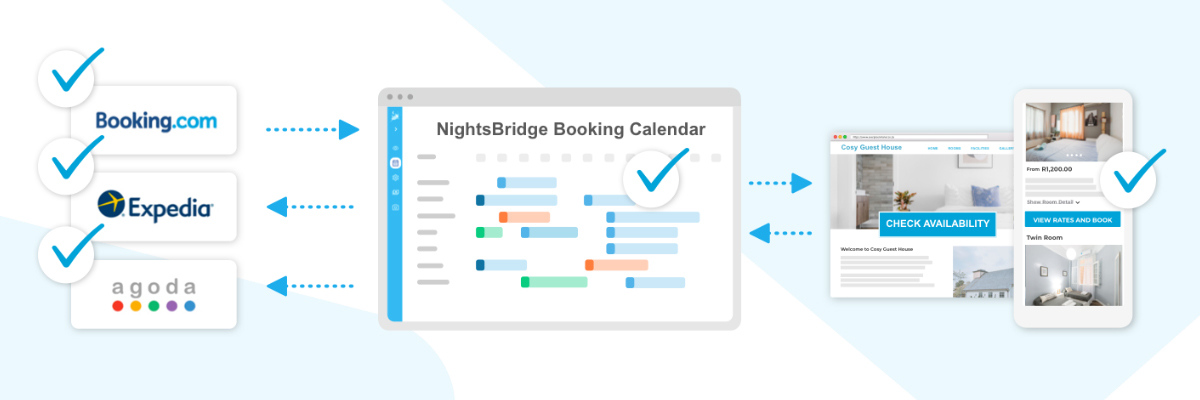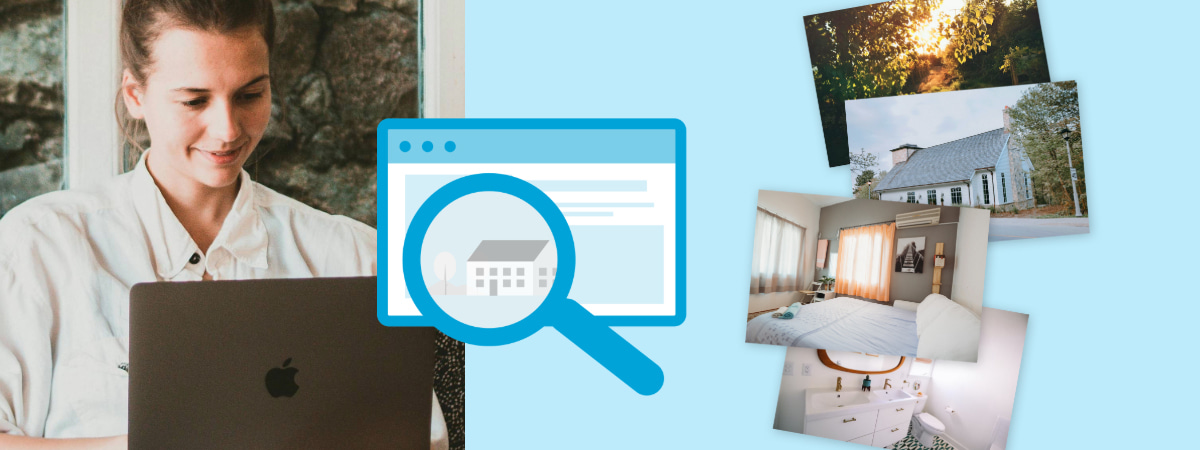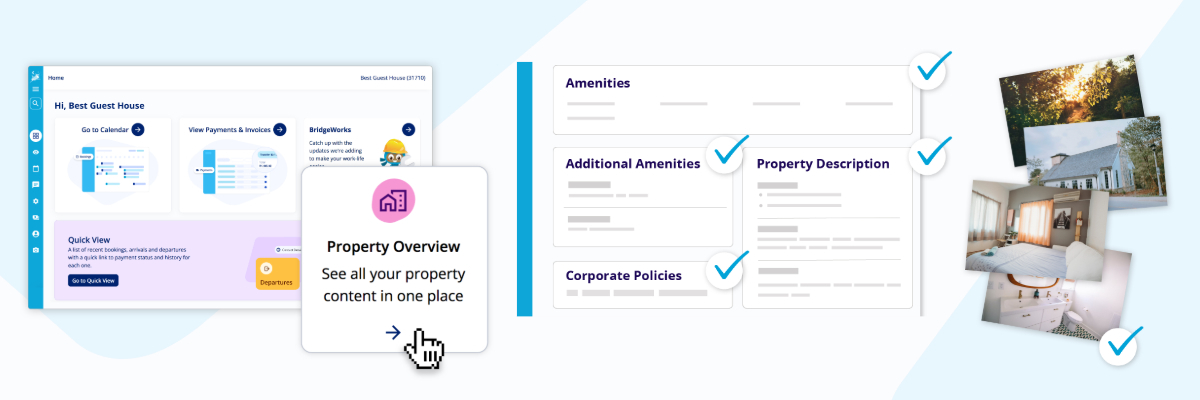Don’t get lost in the scroll! Ready to turn website visitors into happy guests? Forget just focussing on blogs and social media – content is also about telling potential guests exactly who you are and why you’re their perfect match, whether they find you on your own website, a booking platform, or through travel agents. Here are the expert tips on website tweaks to help guests find their perfect property match: which is you!
“One of the key drivers of sales is compelling content. When people consider visiting a destination, they compare various options, and your content helps you stand out and helps them decide based on the available information,” says Paul de Waal, founder of Wetu Tourism Solutions. Enhancing your online presence will help you reel in guests, he says.
Here’s Paul’s step-by-step game plan to make that happen:
Live availability is non-negotiable.
 Having seamless live availability synced across all your booking channels is mandatory these days, not an optional nice-to-have. In his view, real-time inventory distribution has gone from an advanced feature to a basic pre-requisite. “Years ago, we had to discuss it and convince people, but now it’s just what it is. You can’t play the game if you haven’t got live availability.” This is a vital website tweak to help guests find their perfect property match, on their chosen travel dates.
Having seamless live availability synced across all your booking channels is mandatory these days, not an optional nice-to-have. In his view, real-time inventory distribution has gone from an advanced feature to a basic pre-requisite. “Years ago, we had to discuss it and convince people, but now it’s just what it is. You can’t play the game if you haven’t got live availability.” This is a vital website tweak to help guests find their perfect property match, on their chosen travel dates.
Why? Maintaining live availability allows travellers and the travel industry to book their stay confidently without issues like overbooking.
Paul’s top tip: Implement NightsBridge to synchronise your live availability synchronisation across all platforms, including OTAs, your website, and other consumer-facing channels.
Use visual storytelling.

While Paul emphasises that visuals like photos and videos are essential, he cautions that stockpiling assets isn’t enough. The real value comes from intentionally curating and sequencing that content to spotlight your property’s standout features and experiences.
“You can take the best pictures, but if you just load them up randomly, you’re missing an opportunity,” Paul says. Instead, “As a property owner, you should know your target markets and understand who you’re chasing, then tell a story with your pictures.”
He illustrates this concept by starting with an establishing wide exterior shot before guiding viewers through a narrative progression: “You stay back with drone footage so you see the lodge positioned on the water’s edge in the forest. Then you go into the lodge areas, then the rooms, activities, and services.”
Paul’s top tip: Plan your visual strategy by mapping out the storyline flow you want to convey through photos, videos, virtual tours, etc. Organise that content purposefully to highlight your key selling points.
Provide in-depth details.

According to Paul, glossing over important details can easily disrupt and derail a promising booking. “If you don’t tell them something they need to know, they’ll have to break their search flow and find it elsewhere.”
He gives a personal example of when a missed amenity detail led to a memorably negative experience: “We visited Stonetown in Zanzibar, and I’d booked a place without an air-conditioner – it was a disaster.”
Other vital details Paul stresses include accessibility, language support, family amenities like adjoining rooms, unique offerings like photographic safaris or birdwatching guides, and any other amenities or services that guests may filter for. “If somebody’s searching for something specific, you need to let them find that,” he advises.
NightsBridge’s Property- and Room Overview pages are built into the system to help clients get a bird’s eye view of the content they sell with. This makes it easy to spot gaps or areas to improve on.
Paul’s top tip: Conduct a comprehensive amenities/experiences audit for your listings to ensure no critical details are missing that could impact booking decisions.
Focus on your niche.
Rather than casting a net too wide, Paul firmly believes properties should go niche by using their specific strengths, specialities, and differentiators. “I’m surprised how many people try to be everything – ‘We’re good for business, honeymoons, families.’ You’ll struggle to stand out when you try to appeal to everyone.”
He offers more effective examples of niche positioning: “A safari offering could make a big deal about their bird watching guides. If you’re into birding like me, you’ll absolutely choose to go there when researching accommodation.”
NightsBridge client, The View Swellendam, shows off this niche on their website with information on birds in the area and bird tours on offer. The owner, Patrick Reynolds, also shared why NightsBridge was a game changer for his property in a recent interview we had with him.
Paul’s top tip: Based on your strengths and target segments, pinpoint the key reasons why they should choose you over the competition and put that front and centre.
Continuously update.
Keeping your online presence feeling fresh and current isn’t just good practice – it has concrete benefits in terms of visibility and engagement. “OTAs reward you for going in and actively updating. If you haven’t updated in 6 months, you’ll likely fall in their algorithms,” warns Paul.
He strongly recommends making content updates an ongoing part of operations, not a one-off task. “It’s a discipline – you should regularly review and ensure your listings still look right.”
This involves tapping into your team for the latest content. Paul notes, “They’re surely getting good photos, videos, amenity updates, and unique experiences from staff that you can feed back into your channels.”
Paul’s top tip: Establish a recurring calendar and process for methodically reviewing and refreshing listings across all distribution points to keep your online presence looking its best.
Tips for placing content hierarchy on websites.

- Ensure that your website’s navigation is intuitive. Group similar information together and use clear, descriptive labels for each section.
- Place the most critical information, such as booking options, rates, and special offers, above the fold on your homepage. This ensures visitors see the essential details without scrolling.
- Use prominent and clear calls-to-action throughout your website. These should direct users to book now, check availability, or contact you for more information.
- Ensure your website is mobile-friendly. Many users will access your site from mobile devices, and a seamless mobile experience can significantly impact bookings.
- Incorporate customer reviews and feedback prominently. Positive testimonials can reassure potential customers about the quality and value of your property.

